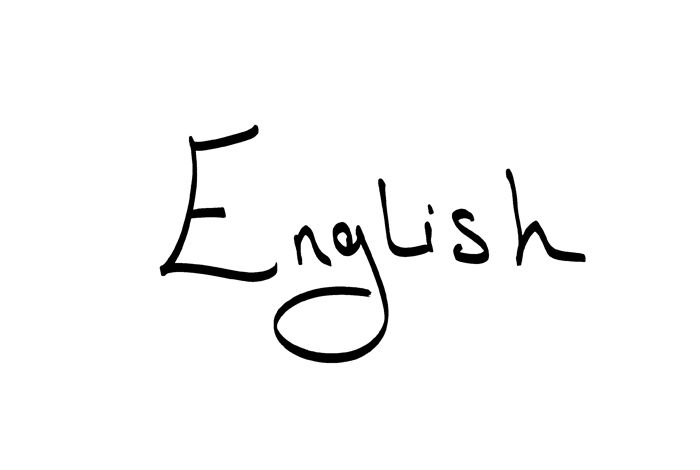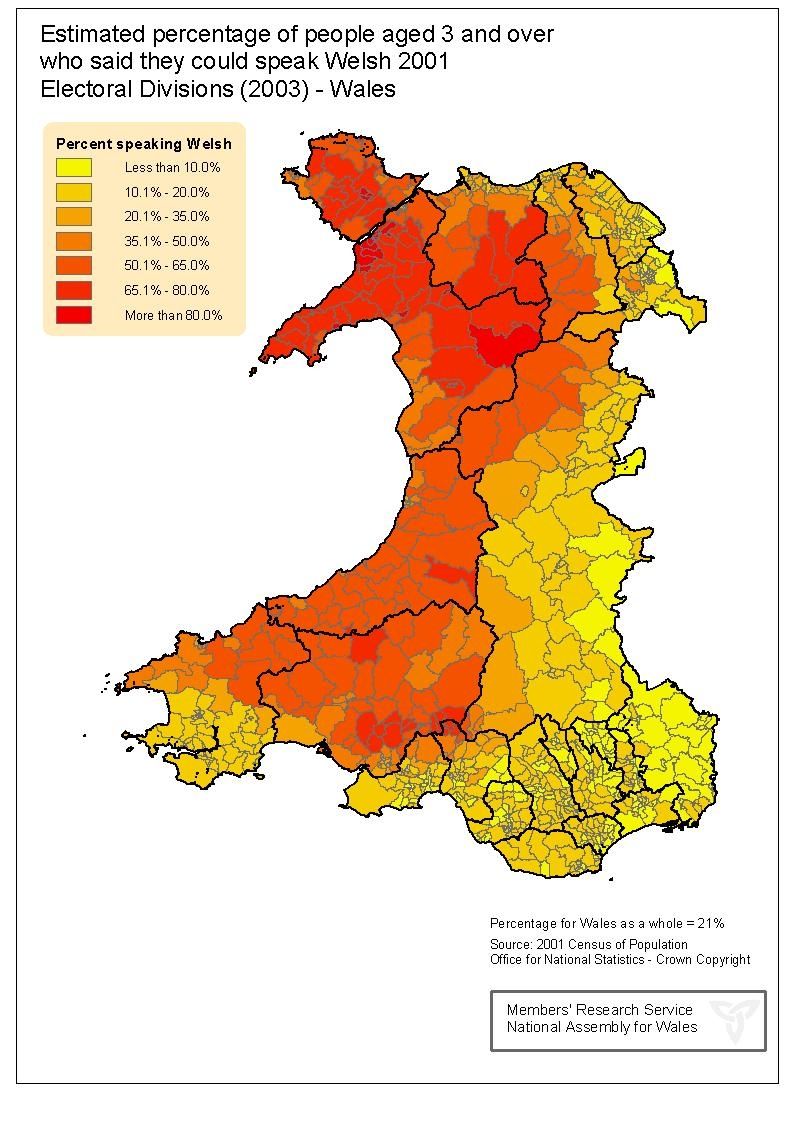English in Wales
A world language

English
English is now the most widely used language in the world. An estimated 760 million people use English worldwide — more speakers than any other language apart from Mandarin Chinese.
However, only 400 years ago it had only 7 million speakers and was mostly unknown outside the British Isles. It was used in most of England and south and east Scotland, but Welsh was still spoken through most of Wales, Cornish was still heard in Cornwall, and Gaelic was the language of Ireland, the Isle of Man and the Western Islands and Highlands of Scotland.
Between the reign of Elizabeth I (1603) and Elizabeth II (1952), the number of English speakers increased fiftyfold to about 250 million. The speed of its expansion since the 1950s has been even more staggering.
Why has this happened? During the 17th and 18th centuries, English was the language of the leading colonial nation — Britain. Then in the 19th century it became the language of the leaders of the industrial revolution. By the 20th century, it was the language of the USA, the most dominant economic power in the world. And of course now it is the language of the Internet — or is it? Contrary to expectations, English has not totally dominated the World Wide Web. There are over 1000 languages on the Internet. In fact, it is estimated that by now less than 50% of the Internet is in English.
Welsh English

Map showing distribution of Welsh speakers, 2001 census.
For the majority of people living in Wales, English is their first and only language. This was not always so. Only a couple of centuries ago, Welsh was the language of most of Wales, apart from a few Englishries such as South Pembrokeshire and the Gower peninsula. Welsh was even spoken in some parts of Herefordshire at one time.
Different parts of Wales have a very different history in relation to the English language, and this is reflected in the local English accent or dialect. Some regions became English-speaking many centuries ago, while in others (such as the South Wales Valleys) English has taken over comparatively recently. There are still areas where English is very much a second language with Welsh being the everyday means of communication. In some Welsh accents of English, you can hear the influence of neighbouring English counties, such as Cornwall or Herefordshire. In others, the vocabulary and patterns of the Welsh language can still be heard in today’s English.
An example from the border country
Ray Smith introduces himself in 'Radnorian English'.
This is Ray Smith, who now lives in Cardiff but was born in the village of Llangynllo on the border between Radnorshire and England. He still retains his Radnorshire accent, which is not your stereotypical Welsh accent due to the influences of nearby English counties. However, as Ray points out, there has never been a clearly defined border between the Welsh and English in this area. Turn to the next chapter to hear more.
Radnorian English
Ray Smith talks about Radnorian English
I was born in a little village called Llangynllo, which is on the border country actually. It borders Shropshire in particular and fairly close to Herefordshire as well. And we spoke English in the home, as a child, and my mother could speak a smattering of Welsh, but Father didn’t and then, of course, we didn't as well, you see. And there wasn’t any Welsh in the schools anyway, so it’s sort of Radnorian English, if there’s such a thing.
Generally people struggle to recognise where I’m from, and even if I tell them where I'm from, they don't know where it is. Radnorshire is one of those little lost counties, I'm afraid, tucked away in a corner of Wales, right on the English border. And so that's really where I get my accent from, you see. People living and working both sides of the border, and intermarrying of course over the border. There was a time when — sometime over a hundred years ago or more when there was more Welsh spoken on both sides of the border, in Hereford and Radnor. In fact, some of the placenames still exist today, Welsh placenames in Herefordshire. Llandinabo is right, well and truly inside Herefordshire, and people still refer to them as being Welsh.
Comments - (2)
True Radnorian English does not have a Welsh lilt .the voice sounds quite deep
And not high pitched .My mother spoke true Radnorian English . I understood her but anyone outside the county would struggle to understand what she was saying